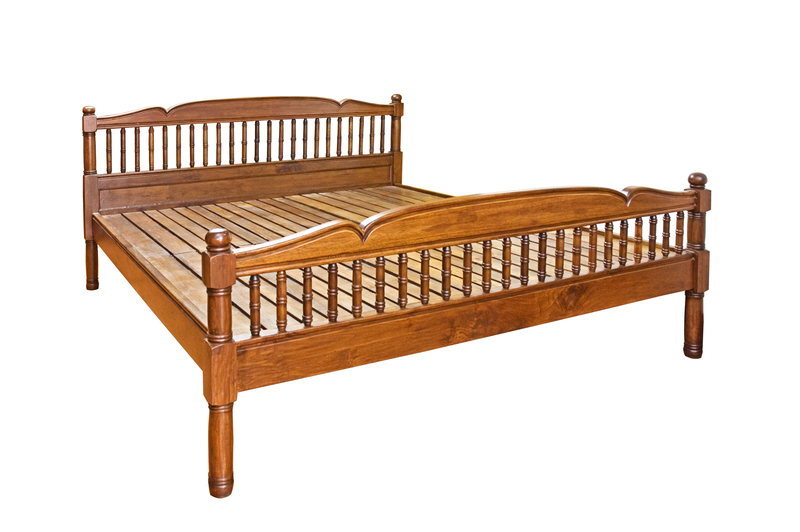Practical Tips for Budget-Friendly Bulky Waste Item Removal
Bulky waste items--like old furniture, mattresses, appliances, and garden debris--can be a real headache when it's time to clear some space in your home or revamp your property. Not only are these items large and heavy, but removing them can also be costly if you don't plan carefully. Fortunately, there are plenty of cost-effective strategies for disposing of bulky waste without breaking the bank or harming the environment.
This comprehensive guide will walk you through budget-friendly bulky item disposal solutions, tips for saving money, and eco-friendly alternatives that make responsible waste management easy and affordable.

Why Choose Affordable Bulky Waste Item Removal?
Before diving into practical tips, it's important to understand why choosing budget-friendly disposal methods is beneficial--not only for your wallet but also for your community and the planet.
- Cost reduction: Traditional waste removal can be expensive, especially if you use a private hauler or make multiple landfill trips.
- Sustainability: Many items don't have to end up as landfill waste--reuse and recycling options abound when you know where to look.
- Convenience: Smart, budget-friendly approaches save you time and effort as well as money.
- Legal compliance: In many places, improper disposal can lead to fines. Following local regulations helps you stay compliant.
- Community benefit: Donating or giving away bulky items helps those in need and reduces waste overall.
Understanding Bulky Waste Items
Bulky waste refers to items too large for standard curbside garbage collection. This includes:
- Furniture: couches, mattresses, desks, chairs
- Large appliances: refrigerators, washing machines, ovens
- Outdoor items: barbeques, lawnmowers, garden furniture
- Home improvement debris: doors, carpets, bathtubs
- Electronics: TVs, computers
Many municipalities have rules and timelines for when these items can be collected. Failing to follow these can result in extra charges or missed collections.
Essential Tips for Cheap Bulky Waste Disposal
1. Check Your Local Council's Bulky Waste Services
Most city councils provide affordable or even free bulky item collection at regular intervals throughout the year. Some tips to maximize savings:
- Plan ahead: Find out your town's collection schedule and align your clean-out project accordingly.
- Combine items: Councils may collect a certain number of items for free, so coordinate with neighbors to make the most of each collection.
- Follow rules: Check guidelines on which items are accepted--some councils won't take certain electronics or hazardous materials.
2. Make Use of Civic Amenity Sites (Recycling Centers)
Local household waste recycling centers, often called "tips," usually accept various types of bulky household waste at no or low cost. Here's how to efficiently use them:
- Sort items: Separate recyclables (metals, wood, electronics) in advance to speed up the drop-off process and maximize recycling.
- Check opening hours: Many centers have specific hours for bulky waste acceptance. Arrive early to beat queues.
- Ask about assistance: Staff can often help with heavy lifting, so don't hesitate to ask.
3. Donate Gently-Used Items
One man's trash is another's treasure. Charities and non-profits often accept used furniture and appliances in reusable condition. Benefits of donating include:
- Zero cost removal: Many organizations offer free pick-up, especially for larger items in good condition.
- Tax deductions: In some cases, donations are tax-deductible--keep your receipts!
- Helping others: Your gently-used items can benefit people in need in your local area.
Popular options include Goodwill, Salvation Army, Habitat for Humanity, and local shelters. Contact them first to check what items they accept.
4. Sell or Give Away Items Online
The internet has revolutionized bulky waste item removal. Here's how to use marketplaces to your advantage:
- Sell for cash: List items on Craigslist, Facebook Marketplace, Gumtree, or Nextdoor. Even broken appliances might interest DIYers.
- Offer for free: Listings like "Freecycle" or "curb alerts" let people take away your items for reuse, no cost to you.
- Disclosure is key: Be honest about the item's condition to avoid misunderstandings.
_Tip:_ List items as "you haul away" to eliminate your labor and transport costs entirely.
5. Organize a Neighborhood Clean-Out Day
If several households in your area have bulky items to dispose of, organizing a community clean-up can help all parties save money:
- Pool resources: Rent a skip (dumpster) or large trailer collectively--cost sharing makes it very affordable per house.
- Negotiate with haulers: Some local junk removal companies offer discounts for bulk or group contracts.
- Raise awareness: Combine with a community garage sale to give items a second life before considering disposal.
6. DIY Removal (If You Have a Vehicle!)
If you--or a helpful friend--have access to a truck or trailer, self-hauling bulky waste can save significantly on removal fees. How to get started:
- Protect your vehicle: Use sheets/tarps to minimize dirt and scratches.
- Check fees: Some recycling centers or landfills charge modest drop-off fees. Compare costs before you go.
- Don't overload: Ensure your load is secure and complies with road safety regulations.
7. Upcycle or Repurpose Old Items
Get creative before considering the landfill. Many bulky waste items can be repurposed into something useful or decorative.
- Furniture: Old dressers can become storage benches; headboards can transform into garden trellises.
- Appliances: Washing machine drums make great fire pits or garden planters.
- Wood scraps: Perfect for DIY crafts or garden edging.
_Inspiration abounds on Pinterest and sustainability blogs!_
Avoiding Extra Costs and Common Mistakes
Watch Out for Hidden Fees
- Leave items curbside properly: Follow local guidelines; wrong placement can result in fines or missed pick-up.
- Avoid hazardous waste: Items like chemicals, paint, or batteries may require special disposal. Mixing them with regular bulky waste can incur penalties.
- Read your removal contract: If using a hauler, clarify exactly which items are included and get all fees in writing.
Don't Dump Illegally
Illegal dumping isn't just bad for the environment--it can cost you hundreds in fines. Always opt for authorized collection events, drop-off centers, or legitimate services.
Compare Quotes If Hiring Professional Removal
If you must hire a junk removal service, always:
- Obtain multiple quotes: Prices vary significantly depending on company, region, and item type.
- Ask about eco-friendly disposal: Reputable companies openly discuss recycling and responsible donation practices.
- Negotiate: Some flexibility exists, especially if you only need partial removal or can be flexible on timing.
Eco-Friendly and Budget-Wise Alternatives for Bulky Waste Removal
1. Participate in Local "Reuse Days" or Swap Events
Many towns host "reuse days" or community exchanges. Residents bring bulky items for swapping, donation, or low-cost sale. This reduces waste and encourages affordable re-use of large items.
2. Look for Specialized Recycling Initiatives
- Mattress recycling: Some mattress retailers or recycling companies accept old mattresses for a small fee (sometimes free with new purchase).
- Electronics take-back: Retailers like Best Buy and Staples often accept large electronics for responsible disposal.
- Appliance haul-away: Utility companies sometimes offer rebates or free haul-away for old fridges and washers when you upgrade to energy-efficient models.
3. Partner With Scrap Collectors
Old appliances or metal furniture have value as scrap. Independent collectors or local scrappers often haul away these items at no cost to you, saving disposal fees and diverting materials from landfills.
Checklist: Planning Your Budget-Friendly Bulky Waste Removal
- Inventory your items: Make a list of all bulky things you need to remove and note their condition.
- Check council guidelines: Review your local authority's rules and collection dates for large item disposal.
- Find donation/reuse outlets: Identify local charities or online platforms where items may find a new home.
- Research free or discounted services: Explore recycling centers, neighborhood clean-up events, or utility take-back programs.
- Request removal quotes (if needed): Compare prices among licensed haulers or junk removal specialists.
- Coordinate logistics: Arrange for storage, transportation, or pick-up based on your chosen method.
- Document everything: Keep receipts, donation confirmations, or collection records for future reference or tax benefits.

Frequently Asked Questions About Affordable Bulky Waste Item Removal
How can I save the most money when disposing of bulky items?
Plan ahead! Take advantage of free local collection dates, donate items where possible, and self-haul to recycling centers if feasible. Combining methods (selling, giving away, and repurposing) offers the greatest savings.
What items are not accepted in bulk waste collection?
Most municipal services prohibit hazardous waste (chemicals, flammable materials), car batteries, and some electronics. Check your local council's website for specific restrictions and safe disposal recommendations.
Can I leave bulky items on the curb?
Only on designated collection days and according to your council's rules. Inappropriate curbside dumping can lead to fines and attracts pests.
Do professional junk removal companies recycle?
Reputable services often recycle or donate usable items. Always ask before you hire and request details about their waste diversion practices.
Are there any tax advantages for donating bulky items?
Yes, many countries or regions offer tax deductions for donations to registered charities. Save official donation receipts and consult with a tax advisor for specifics in your area.
Conclusion: Smarter, Cheaper Bulky Waste Item Removal
Getting rid of large, unwanted items doesn't have to strain your budget or contribute to landfill overload. By planning ahead, exploring budget-friendly bulky waste disposal options, and prioritizing reuse or recycling, you can tackle even the largest clean-out cost-effectively. Whether you're donating, selling, self-hauling, or organizing with your neighbors, these practical tips ensure a cleaner home--and a healthier planet--without unnecessary expense.
For the most affordable--and responsible--bulky waste item removal, always start locally, think sustainably, and get creative with your options. Your wallet (and your community) will thank you!